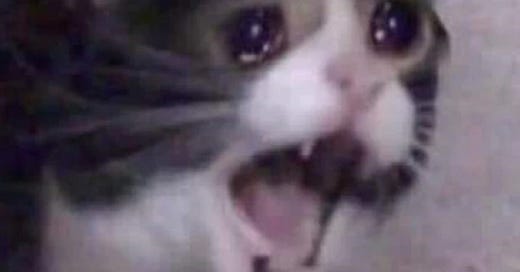Hi,
This past month I have been knee deep in University Things, wading through what felt like the marshiest marsh of just…information.
It’s been overwhelming and frustrating. Frustrating, because I, for a childish moment, thought (hoped) that maybe starting the program would magically alleviate all my anxieties about the future. It has not. It’s in fact, brought more anxiety into my life as I think about all the jobs that I won’t get because I’ll only be newly qualified.
And those hurdles that I need to jump over? I’ve been losing sleep over the idea of actually jumping.
How many Asian English teachers have you come across in your lifetime? As a child who grew up in the international schooling system, I think I’ve had one Asian English teacher during my Primary school days. Every other times, my English teachers have been White. Most of my teachers, other than my Chinese teachers or the occasional Maths teachers, have been White.
If you know me, you know I revere my English teachers. They were all just amazing, extremely talented people who introduced me to a world of literature and critical thinking that I truly believe shifted the trajectory of my life. But I have often wondered and questioned why I never saw myself or my friends in our teachers.
I have now lived in Korea for 6 years, and have firsthand experienced the infamous English/language hagwon system, as well as international schooling from an academic staff member, and a teacher trainee’s point of view. And I have more questions now than I did before.
Why are we so quick to deem White people as ‘Native English speakers’ and non-White folks as…not?
I do not hold a passport from a Western country, nor did I get my two Bachelor’s degrees in a Western university. I consider English to be as much of a first language as my mother tongue, but because of those two factors, I’m othered - all I am is an Asian person who happens to speak really good English. And that’s not good enough for some people in the very industry I’m trying to crack into.
Some will read this and feel that I am being ‘too’ pessimistic. But my lived experiences since graduating high school (where my English proficiency was an accepted fact) has been a frustrating cycle of ‘Are you American? No? Then how are you so good at English?’ and ‘Did you go to a US university? You went to a university here? Oh so you just have really good pronunciation!’
I’ve seen the doubt in my ex-colleagues’ faces when I told them I’d be training to teach English at the Secondary level. I’ve heard the well-intentioned, yet unsolicited advice to choose a specialist subject like Art to be more recruitable.
Having to justify my choice in subject area to my own people has been a familiar kind of exhaustion; it’s just like explaining to White people that non-Western Asian folks can actually speak really good English. If you know, you know.
Most of the students in my school look like me. Most of them love their teachers with their whole hearts. Most of them do not see themselves in their teachers. I didn’t, either.
Lorena Escoto Germán writes about the need for culturally sustaining practices (CSP) in pedagogy to dismantle and challenge systems of oppression from within the classroom. CSP requires a consistent, critical reflection of implicit bias in the content we teach and learn - we need to address what (or who) is omitted in knowledge, what socialised pre-conceptions are often affirmed by confirmation bias and stereotypes embedded in Western-centric curricula and actively challenge subsequent underrepresentation.
I should not feel that my presence in this space is ‘other’. But I do, in this horribly slick and under the surface sort of way. I do not want any of my current or future students to feel othered or underrepresented either.
My stomach hurts just thinking about how difficult it will be once again to not be White in a very White space. My past few years in Korea have been an uncomfortable existence in a lot of ways, but being a minority was not one. I am however acutely aware of how even non-Western societies uphold Western ideals in ‘professional’ spaces. I’ll just have to suck it up and run into it, headfirst.
And while there is a certain level of begrudged, pessimistic acceptance that things will be difficult for me in ways that it won’t be for others, I am more than okay with being a little naive and hopeful in my perspective of being a changemaker.
Like Bell Hooks said, “Teachers are not performers in the traditional sense of the word in that our work is not meant to be a spectacle. Yet it is meant to serve as a catalyst that calls everyone to become more and more engaged, to become active participants in learning”.
I love this life and this job that I’ve chosen, even if I feel that I can’t stomach it.
I love being a person of colour. I love the stories, the art, the music about and made by us. I want our children to learn all of this and more; I want them to feel seen and heard in every space they take up. And I am so ready to see more of us alongside our White peers in a truly equitable environment that fosters our students in all of their differences.
There’s a lot wrong in this world, but change is coming.
Some might say change is already here.
Until next time,
Kim



